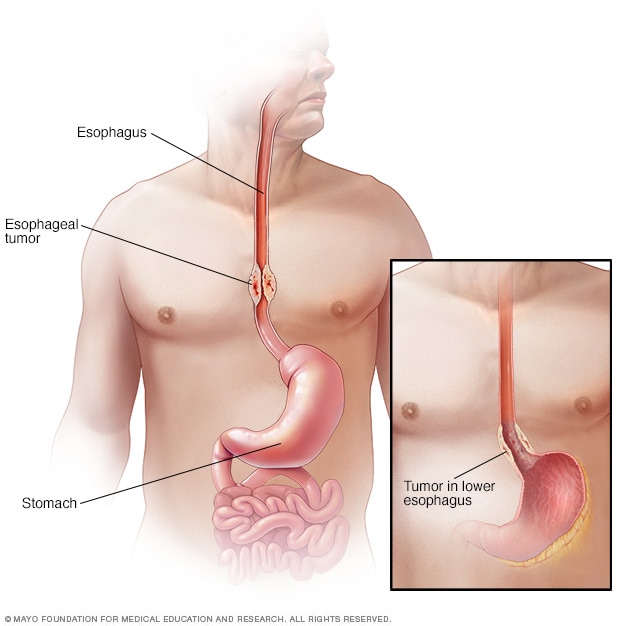Esophageal cancer is relatively rare, making up only about 1% of cancer cases diagnosed each year in the U.S. Mayo Clinic researchers have found that esophageal adenocarcinoma, a type of esophageal cancer, has been rising in incidence over the past 40 years, particularly among people under 50. More concerning is that these younger patients tend to be diagnosed when the cancer is already at a more advanced stage, leading to lower survival rates. They report their study findings in a recently published paper in Cancer Epidemiology, Biomarkers & Prevention.
The Mayo Clinic study drew on the National Institute of Health's Surveillance, Epidemiology and End Results population database to better understand the epidemiology and outcomes of esophageal adenocarcinoma among younger patients.
According to the study:
- Nearly 90% of patients under 50 were diagnosed with advanced stages of disease, compared to 67% of older patents.
- Five-year survival rates were 23% for patients under age 50, compared to 30% for older patients.
“The magnitude of late stage disease and poor cancer-related survival in this age group were surprising findings for us,” said Prasad Iyer, M.D., in a news release published by the American Association for Cancer Research. Dr. Iyer is clinician researcher in the Department of Gastroenterology and Hepatology at Mayo Clinic and senior author on the paper.
Don Codipilly, M.D., a gastroenterology fellow at Mayo Clinic and first author on the paper, says that the trends in esophageal cancer are similar to recent trends in colon cancer.
"In colon cancer, people under 50 make up just 5%–10% of cases, but the rate has been steadily increasing over the past few decades. And similar to esophageal adenocarcinoma, younger patients tend to get diagnosed at a more advanced stage of disease," observes Dr. Codipilly.
But why is this happening?
The authors say there is no clear explanation in esophageal cancer or colon cancer. More research is needed find the biologic, genetic and environmental factors that may be responsible for the trends they've observed in patients under 50 with esophageal adenocarcinoma. They also suspect that delay in diagnosis may be partially to blame.
"Esophageal adenocarcinoma is so rare in younger people that they may not get screened appropriately," says Dr. Iyer. "In addition, younger people may be less likely to visit their doctor if they are experiencing difficulty swallowing, chest pain or other symptoms, compared to older people."
In the paper, the authors say their findings indicate a need to improve screening and management strategies for esophageal cancer. In addition, they recommend that patients be educated about symptoms and risk factors.
"Physicians must keep in mind that EAC (esophageal adenocarcinoma) is not a disease of the elderly and that outcomes for young people with EAC are dismal,” said Dr. Codipilly to the American Association for Cancer Research.
The goal is to catch this deadly disease in its earlier stages, when it is easier to treat, and to improve overall survival rates.
This study was funded in part by an R01 grant from the National Cancer Institute. It was made possible by Mayo Clinic's Center for Clinical and Translational Science (CCaTS).
Related articles:
- "Sponge on a string" test for Barrett's Esophagus and esophageal cancer continues to show promise
- Game changers: Five innovative tests for cancer detection
- Would you get screened for cancer if you could do it at the mall instead of the hospital?










